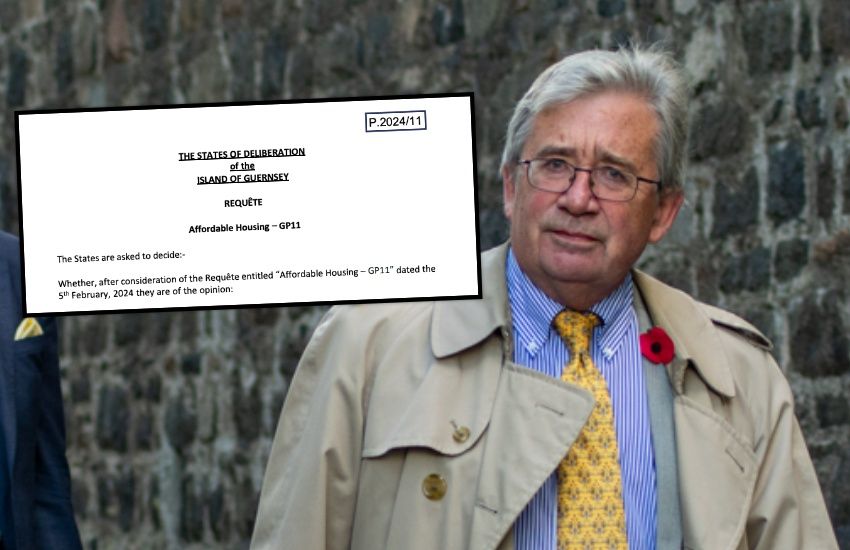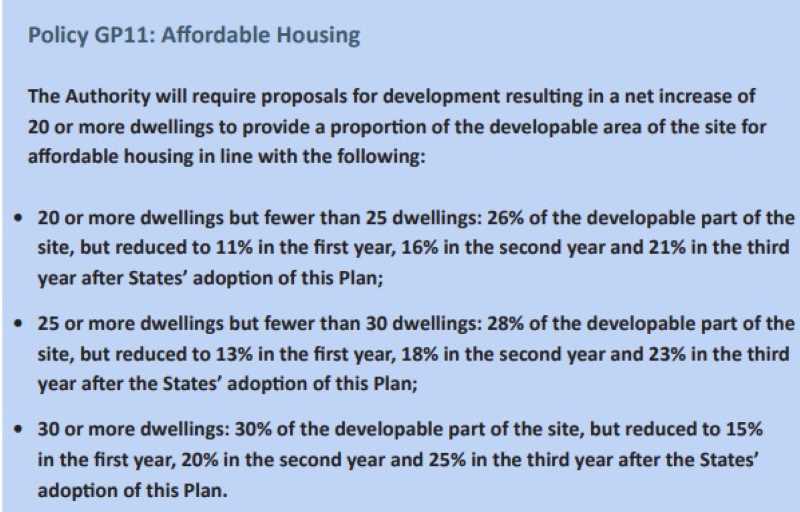


The message from the States to developers is clear - actions speak louder than words.
Ever since a policy tying an affordable housing requirement to large scale projects was agreed, developers had argued it would not work and would prevent houses being built.
Indeed, the policy known as GP11 has not directly led to any new affordable houses.
This morning the States chose to effectively freeze that policy for up to five years.
"This Assembly now watches with interest the actions of developers over the next few months, because actions speak louder than words," said Policy & Resources President Lyndon Trott.
He was echoing a message that had sounded throughout the debate.
"We've clearly been told by developers that GP 11 is stifling investment," said P&R member Deputy Heidi Soulsby.
"And we've seen that over the last four years and they say that this will set them free and they will build. Well, I've heard that for long enough. Now's the time they need to step up to the plate to demonstrate they really are invested in the future of Guernsey and put their money where their mouth is."
She was among those stressing that this policy change would not solve the housing crisis, with building costs barriers that still remained.

Pictured: The GP11 policy has now been effectively frozen for up to five years.
The policy change was sparked by a requete led by Deputy John Dyke, which was amended by P&R to bring in the five year time period.
But there were those that felt it was misleading.
Environment & Infrastructure President, Deputy Lindsay De Sausmarez had argued that by the Spring the Development & Planning Authority would be making recommendations for change anyway, so it was actually only going to be a year long window of certainty.
Her committee has favoured voting through a guaranteed two years for the effective suspension - the direction from the States zero rates the affordable housing requirement for developments of 20 or more units - but had been unsuccessful in that.
The Assembly also heard repeatedly from DPA member Deputy Andrew Taylor that the GP11 policy remained active whatever the direction of the States because it was written into the Island Development Plan and so would still need to be considered by planners.
DPA President Victoria Oliver said that developers just did not want to get involved with GP11 and what comes with bigger sites.
She spoke about the complications in developing land as being a reason why two years, as proposed by E&I, was not enough.
Comments
Comments on this story express the views of the commentator only, not Bailiwick Publishing. We are unable to guarantee the accuracy of any of those comments.